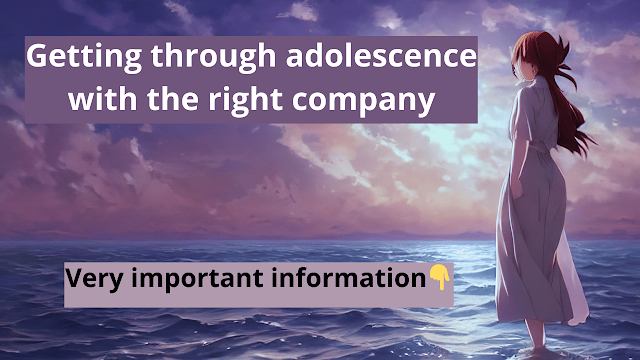Adolescence is a transformative period filled with emotional, psychological, and social changes. One critical aspect of this stage is the experience of romantic relationships, or “pairing.” While these relationships can play a significant role in personal development, they can also pose challenges. This article explores the positive and negative impacts of relationships during adolescence and offers guidance on managing these influences
Positive Effects of Relationships in Adolescence
Emotional Growth
Romantic relationships during adolescence often serve as a platform for emotional growth. Teens learn about empathy, compromise, and communication through their interactions with their partners. These skills are crucial for building healthy relationships in adulthood
Self-Discovery
Being in a relationship can help adolescents discover more about their identity, values, and preferences. They begin to understand what they want in a partner and what they are willing to give in return
Social Skills Development
Relationships provide teens with opportunities to enhance their social skills. They learn to navigate complex emotional situations, resolve conflicts, and build meaningful connections, which are valuable in other areas of life
Boosted Confidence
A supportive partner can boost a teen's self-esteem and confidence. Feeling appreciated and valued in a relationship can contribute to a more positive self-image
Negative Effects of Relationships in Adolescence
Emotional Vulnerability
Adolescents are often emotionally unprepared to handle the complexities of relationships. Breakups or conflicts can lead to feelings of rejection, insecurity, and anxiety, potentially affecting their mental health
Distraction from Priorities
Romantic relationships can sometimes divert attention from academics, extracurricular activities, and family obligations. Adolescents may struggle to balance their time effectively
Peer Pressure and Conformity
In some cases, teens may feel pressured to conform to their partner’s expectations or engage in behaviors they are not comfortable with, including early sexual activity
Dependency Issues
A relationship that becomes overly consuming can foster emotional dependency. This might limit personal growth and the development of a strong sense of self
Navigating the Positive and Negative Aspects
Promoting Healthy Communication
Encouraging open and honest communication is key to managing the dynamics of adolescent relationships. Teens should feel comfortable expressing their thoughts and emotions without fear of judgment or rejection
Setting Boundaries
Adolescents should learn the importance of setting boundaries to protect their emotional and physical well-being. This helps create a balanced relationship dynamic
Focusing on Personal Growth
Teens should be encouraged to prioritize their individual development. Pursuing hobbies, maintaining friendships, and excelling academically can help maintain a well-rounded life
Seeking Guidance
Parents, educators, and counselors play a vital role in guiding adolescents through their relationships. Providing a non-judgmental space to discuss concerns and emotions can help teens make informed decisions
Understanding the Value of Resilience
Teaching adolescents to cope with challenges, such as breakups or misunderstandings, is crucial. Resilience helps them bounce back stronger and prepares them for future relationships
Optimizing Adolescent Relationships for Long-Term Benefits
Adolescents need to view relationships as opportunities for growth rather than as the centerpiece of their lives. Parents and educators should foster environments where teens can explore relationships responsibly. Introducing concepts like emotional intelligence and mutual respect early on can make a significant difference
For teens who experience negative impacts, timely intervention is essential. Therapy or counseling can help address deeper issues and equip adolescents with tools to handle emotional difficulties effectively
Conclusion
Romantic relationships during adolescence can be both enriching and challenging. While they provide opportunities for growth, they also come with potential risks. By understanding these dual aspects and teaching teens how to manage them, we can help ensure that their experiences contribute positively to their overall development
In a balanced and supportive environment, adolescent relationships can become valuable learning experiences, laying the foundation for healthy connections in the future

.ico)

